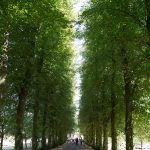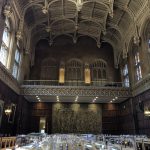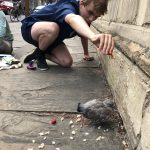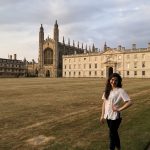After a lovely day exploring the botanic gardens and the city, I lay in bed thinking about my last two weeks and all the ups and downs. Most of my time has been spent in class or with new friends, which has been challenging and rewarding in equal measures.
- Images from the botanic gardens and behind Kings College.
- Images from the botanic gardens and behind Kings College.
Back in January when I was selecting my courses, I decided to leave my biology comfort zone and try a completely new subject: world politics. I hope to one day work in the field of global health and I figured studying world politics at a foreign university would be a good place to start. As it turns out, trying to understand international relations theory in three weeks is like trying to drink from a fire hose. I am stumbling through a confusing world of Realism, non-state players, and international power balance. Every 75-minute class is a test in mental stamina, but I can already feel my understanding of the world’s political system growing and changing.
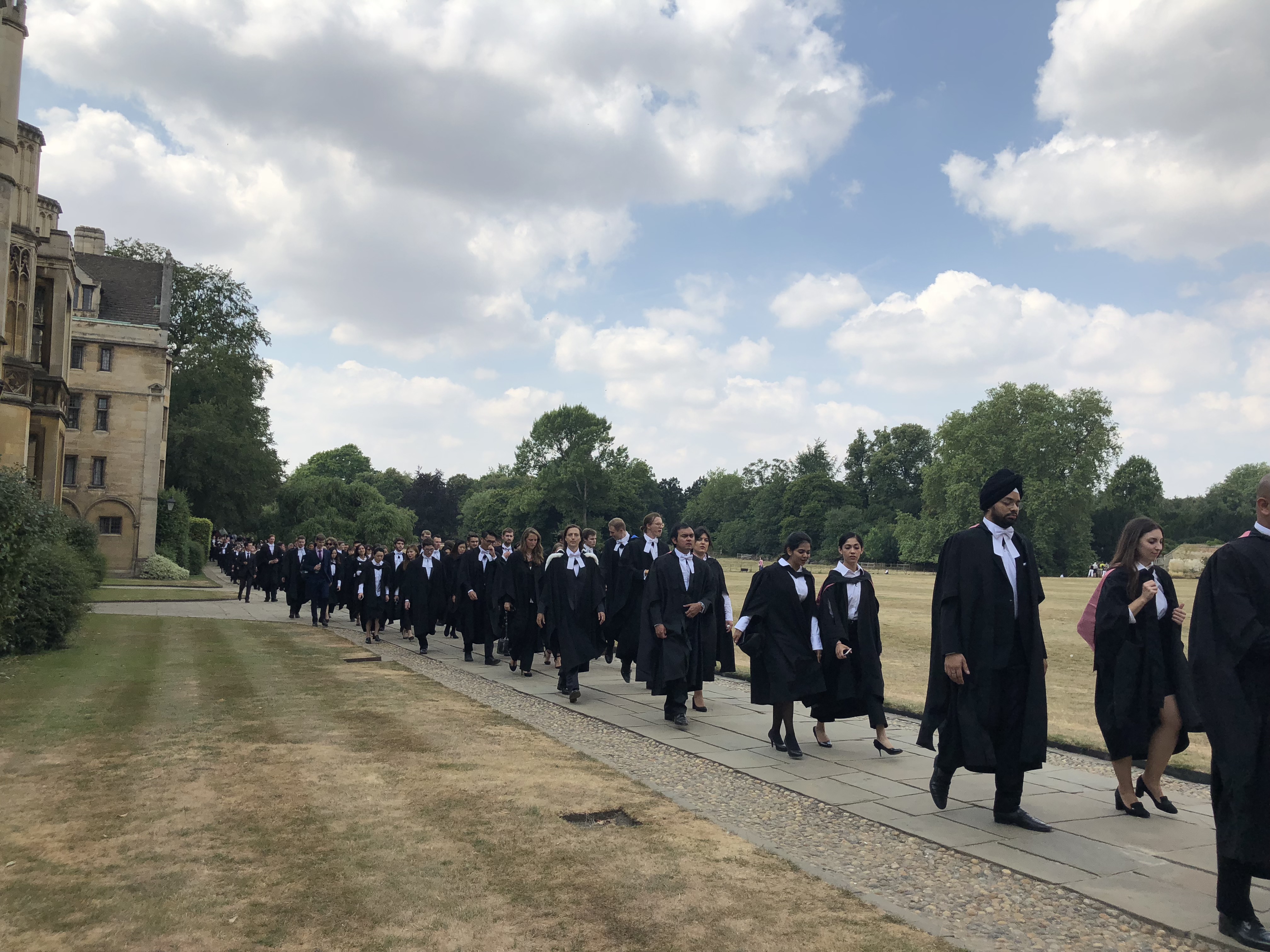
The graduation parade with undergraduate, masters, and graduate students heading to city hall to formally complete their degree.
Before this class I didn’t quite grasp the magnitude of the United States’ influence in world politics. From World War II, to the Cold War, to modern day, the foreign and domestic policies of the US have had far greater impacts then I ever imagined. This realization has been reinforced by several conversations I have had with the locals. I was surprised to find that many of them can speak more eloquently about the US politics situation then most of my friends back home. A Cambridge PhD student even told me that it is “trendy” amongst his friends to keep up with United States’ politics. Two weeks ago I would never have guessed that learning from an Iranian professor at a British institution, surrounded by peers from around the world, would challenge my identity as an American citizen. I am realizing that to truly understand your role as a US citizen abroad, you need to first understand how America’s current and historical actions have impacted the country you are visiting. As I learn more about America’s position in world politics from class, my peers, and the Cambridge locals, I become increasingly cognizant of how I portray myself and my country.
When I am not grappling with political theory, I am meeting scores of new people every day. My program is comprised of 350 students representing many countries. Over our traditional English breakfast, I learn about life in Canada, Singapore, and China. Back home I don’t normally talk to groups of complete strangers, but here I find myself speaking up without hesitation. Walking home from class on Friday I came across a group of three recently graduated Cambridge University students who were circled around a baby bird in distress. After thirty minutes of discussion we finally decided to move the little fluff ball from the busy road to the safer shrubbery nearby. We left the bird with water and sardines and I left with a promise to see my bird-rescuing compatriots again. It’s not always all roses though, being removed from your family and friends can be disorienting, stressful, and sometimes awkward. Last week I was toughly embarrassed to have mistaken a girl in my class for another girl whom I had eaten dinner with the night before. Tactless moments aside, fitting into a whole new social network is a difficult and wonderful experience.
- The dining commons where we take our meals.
- A new friend trying to entice the baby bird with sardines.
My program’s rigorous course load, and vibrant social life, has made these last two weeks feel like two days. With each new experience and conversation my sense of self, and conception of our global community, shifts a little bit more. There are many moments where I have been uncomfortable or anxious, but from each of these moments of difficulty, I grow a little bit more as a person. I believe someone once said the you cannot have the rose without the thorns, and I couldn’t agree more.

